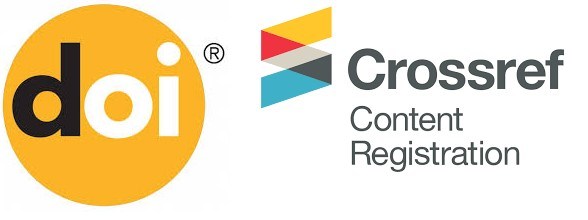MATH TRAILS AND ATTITUDES TOWARDS MATHEMATICS, EFFECTS OF AN INTERVENTION IN PRIMARY EDUCATION STUDENTS IN THE ÑUBLE REGION
DOI:
https://doi.org/10.46219/rechiem.v16i3.140Keywords:
Mathematics trails, Math City Map, Attitude, MathematicsAbstract
This study aims to compare the attitudes towards mathematics of eighth-grade students before and after implementing Mathematics Trail using the MathCityMap application and the differences between men and women. The Inventory of Attitudes towards Mathematics (IAM) instrument was used on a sample of 91 students of 13 and 14 years of age belonging to 4 schools in the Ñuble region in Chile. Higher levels of Perceived Math Inability, Math Anxiety and Negative Emotions Provoked by Mathematics were observed in women (p<0.001) and higher levels of Perceived Math Competence in Mathematics and Intrinsic Motivation toward Mathematics in men. After participating in the intervention, women presented a significant decrease in Self-Oriented Motivational Orientation (p=0.037) and men in Perceived Math Competence in Mathematics (p=0.014).
Downloads
References
Aravena, M. (2001). Evaluación de proyectos para un curso de álgebra universitaria. Un estudio basado en la modelización polinómica [Tesis doctoral, Departament de Didáctica de la Matemática i de les Ciències Experimentáis. Universitat de Barcelona]. Redinet. http://hdl.handle.net/11162/16728
Aravena, M., y Caamaño, C. (2007). Modelización matemática con estudiantes de secundaria de la comuna de Talca. Revista Estudios Pedagógicos, 33(2), 7-25. https://doi.org/10.4067/S0718-07052007000200001
Ariosto, A., Ferrarello, D., Mammana, M., y Taranto, E. (2021). Math city map: provide and share outdoor modelling tasks. An experience with children. Nuevos horizontes en la enseñanza de las ciencias, 99(1), A13. https://doi.org/10.1478/AAPP.99S1A13
Barbosa, A., y Vale, I. (2016). Math trails: Meaningful Mathematics Outside the Classroom with Pre-Service Teachers. Journal of the European Teacher Education Network, 11, 63-72.
Barbosa, A., y Vale, I. (2020). Math Trails Through digital technology: an experience with pre-service teachers. Research on Outdoor STEM Education in the Digital Age, 47-54. https://doi.org/10.37626/GA9783959871440.0.06
Blanco, L., y Blanco, B. (2020). Mirar la ciudad con ojos matemáticos. Uno-Revista de Didáctica de las Matemáticas, 87, 7-13.
Blum, G. (2007). Modelling and applications in mathematics education. Springer. https://doi.org/10.1007/978-0-387-29822-1
Bray, A., y Tangney, B. (2013). Mathematics, technology interventions and pedagogy seeing the wood from the trees. In CSEDU 2013 - Proceedings of the 5th International Conference on Computer Supported Education (vol. 2, pp. 57-63). SCITEPRESS. https://doi.org/10.5220/0004349100570063
Cahyono, A., y Ludwig, M. (2017). Examining motivation in mobile app-supported math trail environments. CERME 10. https://doi.org/10.1007/978-3-319-93245-3
Cahyono, A., y Ludwig, M. (2019). Teaching and learning mathematics around the city supported by the use of digital technology. EURASIA Journal of Mathematics, Science and Technology Education, 15(1), em1654. https://doi.org/10.29333/ejmste/99514
Casanova, S., Vukovic, R. K., y Kieffer, M. J. (2021). Do girls pay an unequal price? Black and Latina girls' math attitudes, math anxiety, and mathematics achievement. Journal of Applied Developmental Psychology, 73, 101256. https://doi.org/10.1016/j.appdev.2021.101256
Corredor, M., y Bailey, J. (2020). Motivación y concepciones a las que alumnos de educación básica atribuyen su rendimiento académico en matemáticas. Revista Fuentes, 22(1), 127-141. https://doi.org/10.12795/revistafuentes.2020.v22.i1.10
Cueli, M., González-Castro, P., Álvarez, L., García, T., y González-Pineda, J. A. (2014). Variables afectivo-motivacionales y rendimiento en matemáticas: un análisis bidireccional. Revista Mexicana de Psicología, 31(2), 153-163.
Elbaek, L., Majgaard, G., Valente, A., y Khalid, S. (2019). Proceedings of the 13th International Conference on Game Based Learning, ECGBL 2019. Academic Conferences and Publishing International. https://doi.org/10.34190/GBL.19.073
Farias, D., y Pérez, J. (2010). Motivación en la enseñanza de las matemáticas y la administración. Formación Universitaria, 3(6), 33-40. https://doi.org/10.4067/S0718-50062010000600005
Fennema, E., y Sherman, J. (1976). Brief reports: Fennema-Sherman Mathematics attitudes scales: instruments designed to measure attitudes toward the learning of Mathematics by females and males. Journal for Research in Mathematics Education, 7, 324-326. https://doi.org/10.5951/jresematheduc.7.5.0324
Fessakis, G., Karta, P., y Kozas, K. (2018). Designing Math Trails for enhanced by mobile learning realistic mathematics education in primary education. International Journal of Engineering Pedagogy, 8(2). https://doi.org/10.3991/ijep.v8i2.8131
Gamboa, R., y Ballestero, E. (2009). Algunas reflexiones sobre la didáctica de la geometría. Cuadernos de Investigación y Formación en Educación Matemática, 4(5), 113-136.
Gaona, J., Miranda, D. G., Vergara, A., Ramírez, P., y Menares, R. (2024). Evaluación de Estándares Didácticos Disciplinares de Futuros Profesores de Matemáticas en Chile: ¿Construyendo un Profesorado Endeudado? Education Policy Analysis Archives, 32(1). https://doi.org/10.14507/epaa.32.7997
Geary, D. C., Hoard, M. K., Nugent, L., Chu, F., Scofield, J. E., y Hibbard, D. F. (2019). Sex differences in mathematics anxiety and attitudes: Concurrent and longitudinal relations to mathematical competence. Journal of Educational Psychology, 111(8), 1447–1461. https://doi.org/10.1037/edu0000355
González-Pienda, J. A., Fernández-Cueli, M., García, T., Suárez, N., Fernández, E., Tuero-Herrero, E., y da Silva, E. H. (2012). Diferencias de género en actitudes hacia las matemáticas en la Enseñanza obligatoria. Revista Iberoamericana de Psicología y Salud, 3(1), 55-73.
Gurjanow, I., y Ludwig, M. (2020). Mathematics Trails and Learning Barriers. In G. A. Stillman, G. Kaiser, y C. Erna Lampen (Eds.), Mathematical modelling education and sense-making (pp. 265-276). Springer. https://doi.org/10.1007/978-3-030-37673-4_23
Harskamp, E. (2014). The effects of computer technology on primary school students’ mathematics achievement: A meta-analysis. In S. Chinn (Ed.), The Routledge International Handbook of Dyscalculia and Mathematical Learning Difficulties (pp. 383-392). Routledge. https://doi.org/10.4324/9781315740713-38
Henríquez, V. V., Gómez, C. G., Araneda, R. M., Mandiola, E. A., y Oñate, A. S. (2015). Aprender del error es un acierto. Las dificultades que enfrentan los estudiantes chilenos en la Prueba PISA. Estudios Pedagógicos, 41(1), 293-310. https://doi.org/10.4067/S0718-07052015000100017
Inzunza, M., y Reyes, M. (2016). La enseñanza de la geometría en la escuela media chilena: hacia una reflexión en torno a su impacto en la formación ciudadana. Calidad en la educación, 45, 8-39.
Kissane, B. (2020). Integrating technology into learning mathematics: The special place of the scientific calculator. Journal of Physics: Conference Series, 1581 (p. 012070). IOP Publishing. https://doi.org/10.1088/1742-6596/1581/1/012070
Leder, G. C. (2017). Do girls count in mathematics? In Educating Girls: Practice and Research (Vol. 20, pp. 84-97). https://doi.org/10.4324/9781315168395
Lee, C., y Johnston-Wilder, S. (2014). Mathematical resilience: What is it and why is it important? In S. Chinn (Ed.), The Routledge International Handbook of Dyscalculia and Mathematical Learning Difficulties (pp. 337-345). Routledge. https://www.routledge.com/books/details/9780415822855/
Lee, H., y Kim, Y. (2014). Korean adolescents' longitudinal change of intrinsic motivation in learning English and mathematics during secondary school years: Focusing on gender difference and school characteristics. Learning and Individual Differences, 36, 131-139. https://doi.org/10.1016/j.lindif.2014.07.018
Mobile Math Trails in Europe [MoMaTrE]. (s. f.). Math Trails. Recuperado el 17 de julio de 2024, de https://momatre.eu/math-trails/
Moustafa, A., Tindle, R., Ansari, Z., Doyle, M., Hewedi, D., y Eissa, A. (2017). Mathematics, anxiety, and the brain. Reviews in the Neurosciences, 28(4), 417-429. https://doi.org/10.1515/revneuro-2016-0065
Niss, M. (2003). 3rd Mathematical Competencies and the Learning of Mathematics: The Danish KOM Project. Mediterranean Conference on Mathematical Education, 115-124.
Núñez, J., González-Pienda, J. A., Álvarez, L., González-Castro, P., González-Pumariega, S., Roces, C., y Rodrigues, L. S. (2005). Las actitudes hacia las matemáticas: perspectiva evolutiva. En Actas do VIII Congreso Galaico-Portugués de Psicopedagoxía (pp. 2389-2396). Universidade do Minho; Universidade da Corunha.
Nurlu, Ö. (2017). Developing a Teachers’ Gender Stereotype Scale toward Mathematics. International Electronic Journal of Elementary Education, 10(2), 287-299. https://doi.org/10.26822/iejee.2017236124
Pino-Fan, L. R., y Cordero, F. (2015). Análisis de la enseñanza de la matemática en Chile: Tendencias y desafíos. En L. R. Pino-Fan, y F. Cordero (Eds.), Investigación educativa en Chile: Tendencias y desafíos (pp. 121-146). LOM Ediciones.
Ramaa, S. (2014). Arithmetic difficulties among socially disadvantaged children and children with dyscalculia. In S. Chinn (Ed.), The Routledge International Handbook of Dyscalculia and Mathematical Learning Difficulties (pp. 146-165). Routledge. https://doi.org/10.4324/9781315740713-18
Ramirez, G., Chang, H., Maloney, E. A., Levine, S. C., & Beilock, S. L. (2016). On the relationship between math anxiety and math achievement in early elementary school: The role of problem solving strategies. Journal of experimental child psychology, 141, 83–100. https://doi.org/10.1016/j.jecp.2015.07.014
Raza, S. H., y Reddy, E. (2021). Intentionality and players of effective online courses in mathematics. Frontiers in Applied Mathematics and Statistics, 7. https://doi.org/10.3389/fams.2021.612327
Rocha, R. (2020). Los desafíos de la educación matemática en Chile. Revista chilena de educación matemática, 14(2), 1-8.
Rodríguez, S., Regueiro, B., Piñeiro, I., Estévez, I., y Valle, A. (2020). Gender differences in mathematics motivation: Differential effects on performance in primary education. Frontiers in Psychology, 10. https://doi.org/10.3389/fpsyg.2019.03050
Rosario, P., Lourenço, A., Paiva, O., Rodrigues, A., Valle, A., y Tuero-Herrero, E. (2012). Prediction of mathematics achievement: Effect of personal, socioeducational and contextual variables. Psicothema, 24(2), 289-295.
Sachdeva, S., y Eggen, P.-O. (2023). “We learn it [mathematics] at school so one thinks that one will use it …”. Acta Didactica Norden, 17(3). https://doi.org/10.5617/adno.10308
Samuelsson, M., y Samuelsson, J. (2016). Gender differences in boys’ and girls’ perception of teaching and learning mathematics. Open Review of Educational Research, 3(1), 18-34. https://doi.org/10.1080/23265507.2015.1127770
Santos, V. (2022). Mathematics and technology: Does it work? In Proceedings of the Asian Technology Conference in Mathematics (pp. 203-217). Mathematics and Technology, LLC. https://www.scopus.com/inward/record.uri?eid=2-s2.0-85142427164&partnerID=40&md5=03d3c102fb0cd532a12d705632d3c7ab
Santos-Trigo, M., Reyes-Martínez, I., y Aguilar-Magallón, D. (2015). The use of digital technology in extending mathematical problem-solving reasoning. In Communications in Computer and Information Science (Vol. 533, pp. 298-309). Springer. https://doi.org/10.1007/978-3-319-22629-3_24
Schifter, D. (2001). Learning to see the invisible. In T. Wood, B. Scott Nelson, y J. Warfield (Eds.), Beyond Classical Pedagogy (pp. 109-134). Taylor & Francis.
Serpe, A., y Frassia, M. G. (2020). Task mathematical modelling design in a dynamic geometry environment: Archimedean spiral’s algorithm. In Lecture Notes in Computer Science (Vol. 11973, pp. 478-491). Springer. https://doi.org/10.1007/978-3-030-39081-5_41
Suh, J., Matson, K., Seshaiyer, P., Jamieson, S., & Tate, H. (2021). Mathematical Modeling as a Catalyst for Equitable Mathematics Instruction: Preparing Teachers and Young Learners with 21st Century Skills. Mathematics, 9(2), 162. https://doi.org/10.3390/math9020162
Shoaf, M., Pollak, H., y Schneider, J. (2004). Math Trails. COMAP.
Steinmayr, R., Weidinger, A. F., Heyder, A., & Bergold, S. (2019). Why do girls rate their mathematical competencies lower than boys? Considering grades, competency tests, teacher- and parent-ratings as potentially explaining factors. Zeitschrift fur Entwicklungspsychologie und Padagogische Psychologie, 51(2), 71-83. https://doi.org/10.1026/0049-8637/a000213
Tacilla, I., Vásquez, S., Verde, E., y Colque, E. (2020). Rendimiento académico: universo muy complejo para el quehacer pedagógico. Muro de la investigación, 5(2), 53-65. https://doi.org/10.17162/rmi.v5i2.1325
Valle, A., Regueiro, B., Piñeiro, I., Sánchez, B., Freire, C., y Ferradás, M. (2016). Attitudes towards math in primary school students: Differences depending on the grade and gender. European Journal of Investigation in Health, Psychology and Education, 6(2), 119-132. https://doi.org/10.3390/ejihpe6020009
Walshaw, M., y Brown, T. (2012). Affective productions of mathematical experience. Educational Studies in Mathematics, 80, 185-199. https://doi.org/10.1007/s10649-011-9370-x
Waswa, D. W., y Al-Kassab, M. M. (2023). Mathematics learning challenges and difficulties: A students’ perspective. In Springer Proceedings in Mathematics and Statistics (Vol. 418, pp. 311-323). Springer. https://doi.org/10.1007/978-981-99-0447-1_27
Yu, X., Zhou, H., Sheng, P., Ren, B., Wang, Y., Wang, H., y Zhou, X. (2024). Math anxiety is more closely associated with math performance in female students than in male students. Current Psychology, 43(2), 1381-1394. https://doi.org/10.1007/s12144-023-04349-y
Downloads
Published
How to Cite
Issue
Section
License
Copyright (c) 2024 Chilean Journal of Mathematics Education

This work is licensed under a Creative Commons Attribution 4.0 International License.











